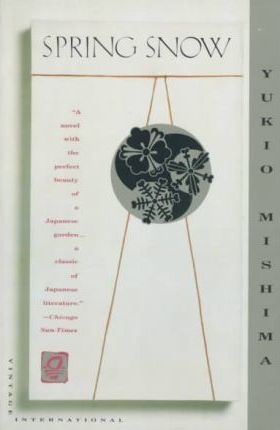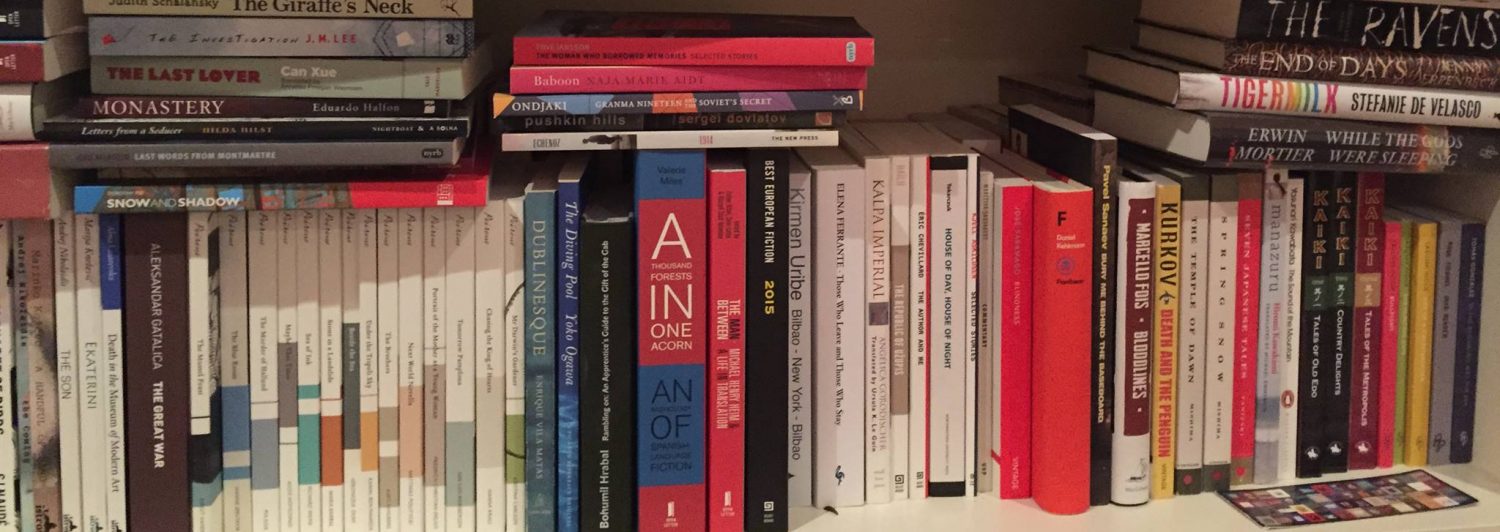 With a very specific purpose in mind, but more on that another time, I have commenced reading Yukio Mishima’s final four books, a tetralogy, “The Sea of Fertility”, and today would like to present some initial highlights.
With a very specific purpose in mind, but more on that another time, I have commenced reading Yukio Mishima’s final four books, a tetralogy, “The Sea of Fertility”, and today would like to present some initial highlights.
Avid readers of world literature would know about Yukio Mishima’s ritual suicide – seppuku, an event that seems to overshadow his significant contribution to Japanese literature. He was considered for the Nobel Prize in 1968, only to see his fellow countryman Yasunari Kawabata take home the gong. It was on 25 November 1970, just after completing his tetralogy, “Hōjō no Umi” translated as “The Sea of Fertility”, that Yukio Mishima, along with four others, attempted a coup d’état, demanding a restoration of the power of the emperor. The failed attempt ending with the writer’s suicide.
His tetralogy commences with “Haru no Yuki” translated by Michael Gallagher as “Spring Snow”.
Yukio Mishima’s novel is set in 1912, soon after the Russo-Japanese War, and with the westernisation of Japan taking place, the book deals with this pervading sense of change. An important theme when reflecting upon Yukio Mishima’s attempted coup d’état, however I will save these reflections for a later post.
Very much like his earlier novel, “The Temple of The Golden Pavilion” we have a novel steeped in Buddhist reflections, central characters who are contemplative, and even though this work is set before the Second World War it also deals with Nationalist themes. Here we have Kiyoaki Matsugae, a sensitive melancholy boy of eighteen, one of the prominent characters, and another dominant theme in this book is the moon, here is a rather lengthy excerpt, with Kiyoaki front and centre;
At this point, both parents were at a loss for viable topics of conversation and began to flounder, their discomfiture evident even to Kiyoaki. Somehow, however, they finally happened upon the congenial subject of Kiyoaki’s Otachimachi, the divination ritual that had taken place three years before when he was fifteen.
This ancient ceremony fell on the seventeenth of August according to the lunar calendar. A large wooden basin filled with water was placed in the garden to catch the reflection of the moon, and appropriate offerings were made. If the sky was overcast on this August night of his fifteenth year, bad fortune was expected to dog the boy who stood before the basin, for the rest of his life.
As his parents talked, the scene came back to Kiyoaki vividly. Flanked by his parents and dressed in his hakama, a divided skirt, and kimono blazoned with the family crest, he had stood in the middle of the dew-drenched lawn, the new basin filled with water before him, and a chorus of chirping insects ringing in his ears.
The trees that encircled the now-darkened garden, the tiled roofs of the mansion itself beyond, even the maple hill – the reflection of all this, and more, had been fixed in jagged outline, compressed into the circle of water that was defined by the rim of the basin. That rim of blond Cyprus wood had become a frontier where this world ended and another began. Since this ceremony during his fifteenth year was to determine his lifetime fortune, Kiyoaki felt as though his very soul, naked, had been set there on the wet grass. The wooden sides of the basin expressed his outer self; the disk of water, which they in turn defined, expressed his inner.
Everyone was silent, so the sounds of insects throughout the garden filled his ears as never before. He gazed earnestly into the basin. The water within was dark at first, shadowed by clouds as thick as clustered seaweed. A moment later the seaweed seemed to wave and he thought he had seen a faint glow suffuse the water, but then it faded. He could not remember how long he had waited after that. Then all of a sudden the black water in the basin, which had seemed impenetrably obscure, cleared, and there directly in its center shone a tiny image of the full moon.
Everyone broke into exclamations of pleasure, and his mother, rigid all this time, was greatly relieved and began to wave her fan to drive away the mosquitos swarming around her skirt.
“Oh, I’m so glad! Now the boy will have a fortunate life, won’t he?” she said.
Then Kiyoaki was congratulated by everyone present.
But he still felt a certain dread. He could not bring himself to look up into the sky at the moon itself, the origin of the image in the water. Rather he kept looking down into the basin and into the water contained by its curved sides, the reflection of his innermost self, into which the moon, like a golden shell, had sunk so deep. For at that moment he had captured the celestial. It sparkled like a golden butterfly trapped in the meshes of his soul.
After dinner that evening, where the ritual three years prior was discussed, Kioyaki’s father requests the boy to accompany him on his walk to his mistress’s house and proposes a night out for his son with geishas so he can ‘kick up his heels’, his reply is simply “No, thank you”
The moon was bright, and the wind moaned through the branches of the trees…The hooting of the owls and the wind in the trees reminded Kiyoaki, still wine-flushed, of the branches blowing in the photograph of the memorial service. As they walked through the bleak, wintry night, his father was anticipating the moist warmth and intimacy of the rosy flesh that awaited him, while his son’s thoughts turned toward death.
When he is eighteen years old Kioyaki is concerned about a letter he has sent, and needs to come up with a plan to retrieve the offending letter before the recipient gets to read it;
The night wind howled at the windows of the passageway with its line of dim lanterns stretching into the distance. Suddenly afraid that someone might see him and wonder at his running and being out of breath like this, he stopped, and as he rested his elbows on the ornamental window frame and pretended to stare out into the garden, he tried desperately to put his thoughts in order. Unlike dreams, reality was not so easy to manipulate. He had to conceive a plan. It could not be anything vague and uncertain; it had to be as firmly compact as a pill, and with as sure and immediate a result. He was oppressed by a sense of his own weakness, and after the warmth of the room he had just left, the cold corridor made him shiver.
He pressed his forehead to the wind-buffeted glass and peered out into the garden. There was no moon tonight. The island and the maple hill beyond formed one mass in the darkness. In the faint glow of the corridor lamps he could make out the surface of the pond ruffled by the wind. He suddenly imagined that the snapping turtles had reared their heads out of the water and were looking toward him. The thought made him shudder.
Kiyoaki’s fate appears inextricable linked to the phases of the moon, will this theme continue?

I’m impressed with your levels of commitment to big books this year. There’s something very rewarding about immersing yourself in a classic series like this. I felt the same about Miklos Banffy’s Transylvania Trilogy when I read it a few years ago.
LikeLike
Thanks Jacqui, I’m finding these tomes extremely rewarding. I’ve recently finished “The Brothers Karamazov” but have been dabbling with my thoughts before putting them into the blog, another “big book” to add to the achievements!!!
LikeLike
Hmmm, fwiw I have found the Mishimas have read (including this one) disappointing.
LikeLike
I have had a few people say that, as well as calling him challenging. Interesting balance of opinions.
LikeLiked by 1 person
I read everything by Mishima some decades ago and was fairly consumed by him and his work. Details have faded but I do recall the beauty of the writing.
LikeLiked by 1 person
I feel as though I will be joining you & seeking out a lot more
LikeLiked by 2 people
Thank you for a thought-provoking post!
In fact, I’m not a big fan of Mishima, though I’ve read several of his books in the past (such as Confessions of a Mask, The temple of the Golden Pavilion etc.) And I’ve recently finished Spring Snow, in part inspired by your tweet about the book. I often wonder why Mishima is still appealing worldwide…To find an answer to this question, I restarted reading his works. In Spring Snow, main characters (Kiyoaki & Satoko) seem to be haunted by death drive, self-destruction, not exactly love. However, Mishima depicts their transgression quite beautifully. Mishima often reminds me of Oscar Wilde’s famous remark: “There is no such thing as a moral or an immoral book. Books are well written, or badly written.” I hope you’ll write more and more reviews of Mishima. Have a great week!
LikeLiked by 1 person
Pingback: Yukio Mishima’s “The Sea of Fertility” tetralogy, allegory and metaphor | Messenger's Booker (and more)